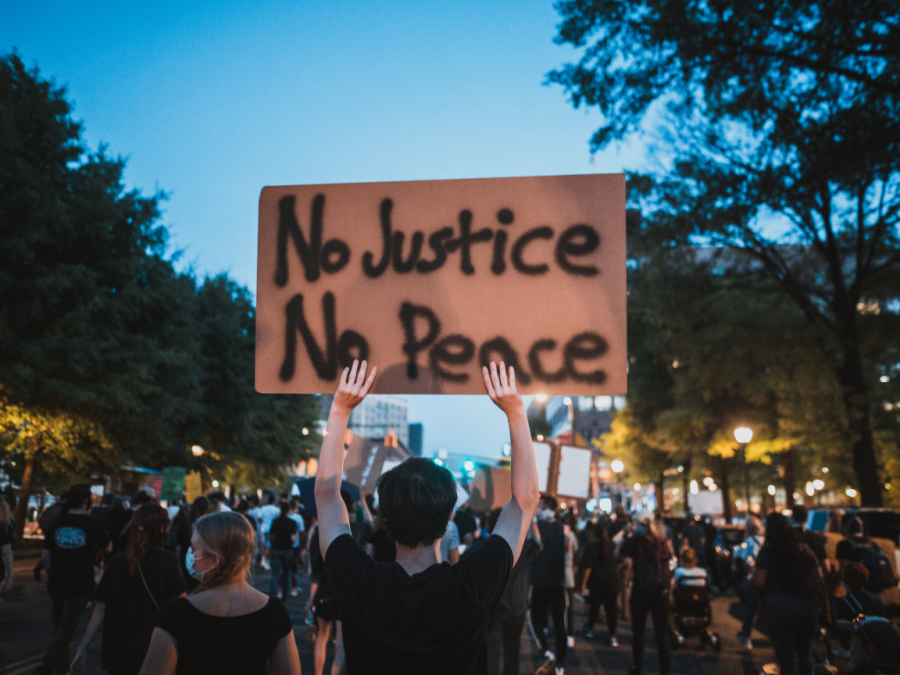New bill revokes immunity from officers who commit serious misconduct
There are many times where law enforcement tends to violate their role as they’re on duty. California Gov. Gavin Newsom has signed Senate Bill 2 on Sept. 30 to revoke the licenses of police officers who commit serious misconduct.
In a profession that promotes the safety and well-being of citizens, there are too many instances where law enforcement violates their role while on duty.
With the death of George Floyd, Breonna Taylor, Stephon Clark and way too many other victims of police brutality, the time to hold prejudiced and unqualified officers accountable is long past due.
California Gov. Gavin Newsom signed Senate Bill 2 on Sept. 30, making it easier to revoke the licenses of police officers who commit serious misconduct.
SB 2 will also prohibit those who have been convicted of a felony from being hired as a peace officer in other departments, according to Open States, a website that tracks and reviews bills and legislation of each state.
Despite having extensive occupational licensing laws, California was previously one of only four states to allow officers to have immunity from the consequences of violating someone’s civil rights.
Minority communities, in particular, are often the victims of police violence in unsolicited stop and frisks and traffic stops.
The California Racial and Identity Profiling Act shows the bias that police officers have against minority groups in traffic stops.
“Black people are much more likely to have firearms pointed at them by police officers,” according to The Guardian. “At the same time, when the police search Black, Latino and Native American people, they are less likely to find drugs, weapons or other contraband compared to when they search white people.”
Racial disparities in California police stops exemplify the unethical treatment officers have against these minority groups, which leaves their communities to live in fear of police officers.
“Black people in particular, and Latinos, are fearful of the police and are constantly having their dignity compromised by unwarranted stops and searches,” said Alberto Retana, the CEO of the Community Coalition of Los Angeles.
The CoCo of Los Angeles works to help transform the social and economic conditions of South Los Angeles that foster addiction, violence, crime and poverty, according to their official website. They build a community institution that creates, influences and changes public policy.
Acts of sexual misconduct within the police system is often a crime that goes unreported, according to a 2014 study by Bowling Green State University.
California Highway Patrol Officer Frank Meranda sexually harassed multiple women on his own work computer, sending non-consensual explicit photos and messages, according to an NPR article about sexual abuse in the police system.
One of his victims revealed in a KQED-FM interview, Meranda repeatedly stalked her after obtaining her contact information from a form she filled out about a towed vehicle in 2015.
After further investigation, it was revealed that Meranda used the police database to get her name, age and license plate number.
Meranda is only one of the many police officers who were charged with sexual misconduct. However, many of them are quietly fired with details about their cases swept under the rug to protect police disciplinary inquiries from the public.
Victims of sexual harassment from police rarely receive justice because of the immunity that stands between them.
Hopefully, with SB 2, cases like Meranda’s will be taken seriously and cops who commit these crimes will be weeded out from the profession completely.
It is acts like racial prejudice and sexual misconduct that validate legislation like SB 2.
Unfortunately, there are many other forms of police misconduct that take place every day, whether it is reported or not.
Hopefully, SB 2 will be implemented and enforced to keep “bad cops” out of the profession. The whole law enforcement system needs to be rebuilt, but SB 2 is a fair start to police accountability.

